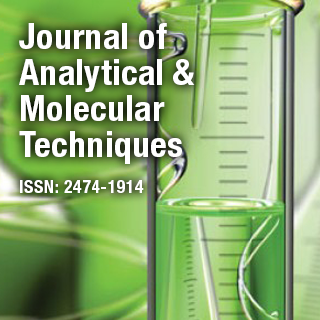Editorial Board
Editor-in-Chief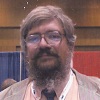
is currently working as a Professor, Department of Chemistry and Biochemistry, New Mexico State University. He is Visiting Scientist at Los Alamos National Laboratory. His study is on development & application of optical spectrochemical methods of analysis to chemically complex systems.

holds the Anniversary Chair of Biological Physics, University of York, UK. His research specializes on the theme of Single-molecule cellular biophysics. His group specializes in developing and applying novel forms of optical microscopy to investigate complex biological processes at the level of single molecules.

is a Professor of Biology and Biochemistry, Chemistry at the University of Houston. Her current interest focuses on the method and technology for decoding cancer proteome for advancement of effective cancer diagnosis, therapeutic treatment by molecular tools and personalized medicine. A project of The Cancer Proteome Atlas (TCPA) is in development.
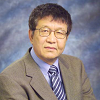
is a Professor of Chemical Engineering, a member of the Data Storage Systems Center (DSSC) and the Institute for Complex Engineered Systems (ICES) at Carnegie Mellon University in Pittsburgh. His research focuses on the fundamentals in engineering science and their application to the state-of-the-art engineering problems.

is a Professor and Chair of the department of chemistry at York University, Toronto, Canada. He is developing new surface chemistry and bioanalytical tools to study cell behavior. He is also developing new Liposome fusion technology to rewire human cell surfaces for tissue engineering applications.
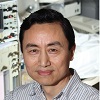
is working as Professor in the department Biomedical Engineering at Northwestern University. Dr. Liu is interested in Cardiovascular regenerative engineering; hepatic cell mobilization in response to myocardial ischemia; hepatic cell mediation of cardioprotection; pattern formation of vascular smooth muscle cells.
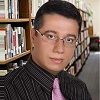
is the President of American International Standards Institute (AISI), Irvine, California, USA. His research interests are Biophysical Chemistry, Nanochemistry, Quantum Chemistry, Biomolecular and Vibrational Spectroscopy, Molecular Modeling and Structure, Theoretical, Computational and Mathematical Chemistry, Ab initio and Density Functional Methods.
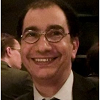
is Professor in analytical & bioanalytical chemistry, Stockholm University, Sweden. He has more than 20-year experience in bioanalysis & in drug development. He is a visitor professor at the National Research Center of Egypt (NRC). The main focus is developing of new sample preparation techniques for the isolation of drugs & metabolites from complex matrices.

is working as Professor at Institute of Chemistry Chinese Academy of Sciences, China. Dr. Wang is currently developing nanoparticle assemblies for surface-enhanced Raman scattering (SERS), explore how the electron transfer effect on SERS enhanced factor by controlling the different potential between connected binary nanoparticles.
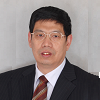
is working as Professor in the Institute of Chemistry, Chinese Academy of Sciences. His research interests focus on the design and synthesis of new spectroscopic (chromogenic and fluorogenic) probes and their analytical applications; biospectroscopy and nanosensing analysis.

is currently a Distinguished Professor, Department of Chemistry, National Taiwan University. His research interests include Green synthesis of metallic nanoparticles, NPs as laser desorption/ionization matrices in mass spectrometry, Aptamers & proteins functionalized NPs for the detection of metal ions, Preparing nanodrugs for anticoagulation of blood, NP based fuel cells.
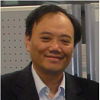
a Professor of Chemistry at Nanjing University, China. His current research interests involve nanoanalytical chemistry and materials chemistry, which mainly focus on the synthesis of biofunctional nanoparticles, biological and biomedical applications of nanoparticles, electrochemical and fluorescence biosensors.

is an Associate Director, Spectrum Pharmaceuticals, Irvine, USA. His research focuses on Reverse phase liquid chromatography, HPLC method development, HPLC method validations, affinity chromatography, hydrophilic interaction liquid chromatography, protein immobilization technologies, and LC/MS/MS for small molecules.
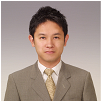
is the Associate Professor in Division of Analytical Chemistry, Unit of Pharmaceutical Health Sciences, Graduate School of Biomedical Sciences, Nagasaki University, Japan. His research interests include area of proteomics, mainly focuses on profiling disease-associated antigens, and separation science.
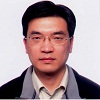
is an associate professor in the College of Life Sciences, Nankai University, China. Currently his research interest focuses on vascular biomaterials and tissue engineering, including the architecture design and surface bio-functionalization of the vascular grafts with the aim to regulate in vivo regeneration process of the neoartery.
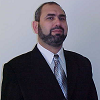
Associate Professor, University of Technology Sydney. He is holding a PhD in Electrical Engineering (AI); He is working in cross-disciplinary applied research area and established my track record. His research area covers the fields of Computational Intelligence, Bio-Mechatronics Systems, Health Technology, and Artificial Intelligence Systems.

is an Associate Professor of Radiology, Biomedical Engineering, & Pathology at Case Western Reserve University, Case Center for Imaging Research, Cleveland, USA. His research interests are Imaging Transferrin Receptor Expression, In vivo Imaging of Human Schistosome Parasites, Detection of Breast Tumors by MR imaging & Multiplexed Imaging of Molecular Targets.
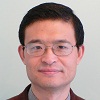
is an Associate Professor in Nanochemistry, Department of Chemistry, University of Leicester. His current research focuses on Physical Chemistry of molecules and clusters in superfluid helium nanodroplets, the synthesis and applications of novel nanoparticles using superfluid helium droplets as the nano-reactors.

is an Associate Professor, Centre for Biospectroscopy, Monash University. His research focuses on biological & biomedical applications of FTIR & resonance Raman spectroscopy in combination with multivariate methods applied to molecules, cells & tissues. Recently he has combined AFM & Tip Enhanced Raman Scattering (TERS) to investigate drug interactions.
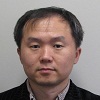
is an Associate Professor in the Department of Bioengineering, Pennsylvania State University. His research focuses on creating novel biomaterials based on the evolving understanding on the interactions of biomaterials and living organism and developing transformative biotechnologies for applications in tissue engineering, drug delivery, medical device, and bioimaging.
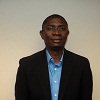
is currently an Associate Professor, North Carolina A&T State University. His research interests include chiral drug analysis, analytical spectroscopy, environmental remediation, fluorescence detection of molecules of pharmaceutical, clinical, biomedical, forensic, and environmental interest as well as chemometrics and multivariate analysis, & process optimization & process control.
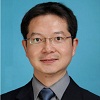
is an Associate Professor in the Department of Biomedical Engineering at Peking University, China. His current research focuses on research and development of optical nanoscopy, multiphoton microscopy, as well as novel biomedical optical imaging techniques for the early diagnosis of major diseases such as cancer.

is a Visiting Associate Professor in the Department of Chemistry at Carleton University, Canada. His research focuses on analysis of biochemical, food and environmental samples for public health using liquid chromatography-mass spectrometry and capillary electrophoresis, functionalization of nanomaterials for sensitive detection and removal in waters.
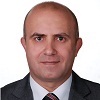
is an Associate Professor, Mutah University, Jordan. His research focuses on crystal engineering and supramolecular chemistry involving industrial applications, synthesis and characterization of semiconducting materials, organic materials for and industrial applications (functional materials) such as pharmaceutical industry.
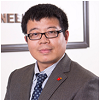
is currently an Assistant Professor in Dan F. Smith Department of Chemical Engineering at Lamar University. His current research focuses on fundamental science behind multifunctional light-weight nanocomposites for energy harvesting, environmental remediation and electromagnetic radiation shielding applications.
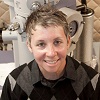
Assistant Professor of Biological Sciences and of Biomedical Engineering, Virginia Tech Carilion Research Institute. Dr. Kelly is pursuing innovative biophysical approaches for macromolecular structure determination. She has developed microchip-based Affinity Capture technology to isolate cancer stem cells and macromolecules in action for high-resolution imaging.

is the Wilf Family Term Chair and an Assistant Professor in the Department of Bioengineering at the University of Pennsylvania. His research focuses on developing innovative bioengineering technologies based on biologically inspired design principles and micro/nano-engineering approaches to improve human health and promote environmental sustainability.

is a Principle Investigator at the Department of Biomedical Engineering, School of Medicine, Tsinghua University, China. His research focuses on building nano/microscale systems for miniaturized biosensing & high-throughput cell-based drug screening, developing enabling technologies to build 3D biomimetic microenvironment for cell-based assays and cell-based therapy.
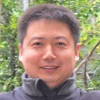
is a Research Scientist, University of Kansas Bioengineering Research Center, & the director of Bioengineering Research Center Laboratories, University of Kansas School of Engineering. His research focuses on synthesis & development of biocompatible polymeric materials, craniofacial & orthopedic reconstructions as well as tissue engineering applications.
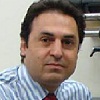
is an Assistant Professor of Biomedical Engineering at Johns Hopkins University. He is also an Assistant Professor with the Departments of Orthopedic Surgery and Bioengineering at the National University of Singapore, and a Principal Investigator with the SINAPSE Institute. Focus of his research is on peripheral and central nervous system injury, repair and regeneration.

is an Assistant Professor in Department of Pathology and Laboratory Medicine at the University of California, Davis. His research interest focuses on the development of novel, label-free optical methods for cellular and tissue analysis. He has been developing laser tweezers Raman spectroscopy for single cell analysis.
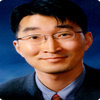
is an Assistant Professor in the Department of Bioengineering, University of Washington. His research focuses on the development and applications of biomimetic cell culture models and functional tissue engineering constructs for elucidating cell biology, high-throughput drug screening, stem cell-based therapies, disease diagnostics and medical device development.
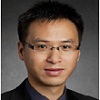
is an Assistant Professor of Bioengineering at the University of Illinois at Urbana-Champaign. His research focuses on synthetic and systems biology – the analysis, construction, and exploitation of genetic regulatory networks for cellular function reprogramming.

is an Assistant Professor of Radiology and Advanced Imaging Research Center at UT Southwestern Medical Center. He has more than 20 years experience in NMR. The main focus of his research is developing new MRS/MRI techniques for study of energetic metabolism in human skeletal muscle in normal physiology and diseases.
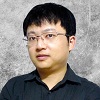
is an Assistant Professor, University of Macau. His research focuses on development of natural carbohydrate based biomaterials & therapeutic agents for a wide range of biomedical applications, drug delivery and cancer immunotherapy. He is also setting up high-throughput screening platforms to identify natural compounds with anti-metastasis activity.
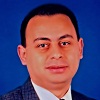
is an Assistant Professor, Biology Department, Al-Baha University, Kingdom of Saudi Arabia. His research focuses on Plant biotechnology, Plant Molecular Biology, Medicinal Plant, Plant Tissue Culture and Genetic Transformation.

is currently working as Assistant Professor at Institute of Chinese Medical Sciences, University of Macau, China. His primary research interests are in anti-cancer and anti-inflammatory drug discovery, Development of sensing methods for disease markers and molecular pharmacology.

is a Lecturer in the department of Bioengineering at Imperial College London (U.K.). He is currently interested in the engineering of original molecular probes directed against DNA or RNA for sensing and therapeutic applications. Dr. Ladame’s group notably aims to develop original chemical and biochemical tools for the early stage diagnosis of a broad range of diseases.

is working as an Assistant Instructor at UT Southwestern Medical Center. His research focuses on the design and synthesis of new targeting or responsive agents for molecular imaging of cancer with positron emission tomography (PET) and MRI.

is an Assistant Professor in the Department of Bioengineering at the Pennsylvania State University. Her current research focuses on understanding the molecular organization of cell membranes, interactions of these membranes with nanomaterials, and development of nano-carriers that can efficiently cross these membranes for intracellular delivery of therapeutics.
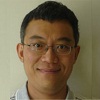
is working as Assistant Professor, Carlson School of Chemistry & Biochemistry, Clark University. His research focuses on understanding the energy conservation in photosynthetic microbes, explore their metabolic pathways using genomics, transcriptomics, metabolomics, biochemical, & physiological approaches, developing bio-hybrid devices.
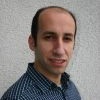
is currently working as W1 Junior Professor in the Department of Physics at Freie Universitat Berlin. His group deal mainly with functional materials in solution and at interfaces. His goal is to follow dynamics in femtosecond time scale and probe structure in sub-nanometer scale for biochemical materials in solution and at interfaces.
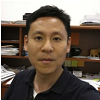
is an Associate Professor in the School of Dentistryat the University of California, Los Angeles. His primary research areas are to design and fabricate biomimetic polymer systems for tissue regeneration and drug delivery applications, particularly focusing on orthobiologics, customized scaffolds, injectable hydrogels, and controlled release.

is a member of UT Southwestern Medical Center. His research focuses on the design, synthesis and evaluation of F-18 labeled hydroxyquinoline derivatives as PET imagingagents for early detection of amyloid plaques in AD mouse model and also radiolabeling of novel engineered monoclonal antibodies for tumor imaging by PET and SPECT in preclinical tumor model.

is a Research Professor, Department of Molecular Biotechnology, College of Life & Environmental Science, Konkuk University, South Korea. Currently he is working on analysis of Food, Pharmacology, Toxicology and natural compounds with their biological study and food, drug and chemical toxicology.
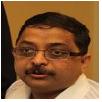
is currently working as Staff Scientist, R&D collaborations manager for Siemens Healthcare. His research areas of interest are molecular Imaging, Myocardial Perfusion MRI, MRI Postprocessing, Digital Image Processing, Digital Signal Processing, System Identification, Mathematical Modeling, Optimal Control, Stochastic Optimization.
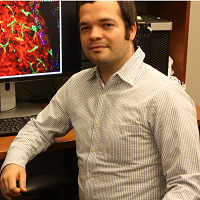
is working as Professor in the Department of Pathology, Federal University of Minas Gerais, Brazil. His research specializes on the Pharmacology & Therapeutics, Stem Cell Research, Journal of Cell Science, Pathology, Research and Practice, Plos One, etc., Instructor in the Basic Biochemistry, Cellular Biology, Medical Bacteriology, Pathology course.


